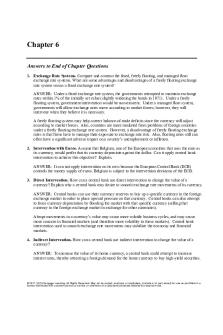Intervention and assessment PDF

| Title | Intervention and assessment |
|---|---|
| Author | vanessa oh |
| Course | Gerontological Social Work |
| Institution | Laurentian University |
| Pages | 2 |
| File Size | 42.1 KB |
| File Type | |
| Total Downloads | 28 |
| Total Views | 174 |
Summary
study notes on intervention adn assessment of clients...
Description
Intervention Models: Systematic Interview Steps As social workers focus on person in environment it is useful to relook at intervention models used in practice. For the purpose of this paper, three different intervention models will be named, with one model being highlighted. 1. Compton and Galaway feature Phases of the Problem-Solving Model: Phase I - Contact or Engagement Phase Phase II - Contract Phase, including assessment Phase III - Action Phase, including evaluation (1989, p. 389-391) 2. Johnson features the Stages of the Problem-Solving Process: Stage 1 - Preliminary statement of the problem Stage 2 - Statement of preliminary assumptions about the nature of the problem Stage 3 Selection and collection of information Stage 4 - Analysis of information available Stage 5 - Development of a plan Stage 6 - Implementation of the plan Stage 7 - Evaluation of the plan (1992, p. 55) 3. The Intervention Process Model used by Eastern Mennonite University’s social work program is the Sheafor, Horejsi, and Horejsi Planned Change Process which has five phases: Phase I - Intake and Engagement Phase II - Data Collection and Assessment Phase III - Planning and Contracting Phase IV - Intervention and Monitoring Phase V - Termination and Evaluation (2000, p. 126-127)
ng at Phase II - Data Collection and Assessment. Client System Assessment: Essential Skill for Practice Client system assessment is one skill social workers use during interventions with clients systems throughout the intervention process. The models named create a systematic method for problem-solving or processing client issues. This paper is focusing on the assessment component. Social workers are aware that micro, mezzo and macro levels impact client systems. In fact one definition of Social Systems Theory is the interconnectedness of the person and environment on the micro, mezzo and macro levels. In generalist social work practice client system assessment is an ongoing social work skill used with all intervention levels and throughout the client intervention process. Suppes and Wells name five “levels of intervention” the individual, family, group, organization and community levels (2013). University students and social work practitioners face the challenge of taking an abstract concept, the “art” of social work as such, and combining it with evidence-based practice skills Why Is Theory Important in Social Work?
Social work theories help social workers analyze cases, understand clients, create interventions, predict intervention results and evaluate outcomes. While the theories are constantly evolving as new evidence is produced, referencing social work theories that have been used over time enables social workers to explore causes of behavior. They can then help their clients find the best solutions. Learning about various social work theories helps remind social workers that their personal assumptions and beliefs should be suspended during social work practice. Social workers should use evidence-based theories to investigate issues and drive their practice, instead of applying their own attitudes, reactions...
Similar Free PDFs

Intervention and assessment
- 2 Pages

Crisis AND Crisis Intervention
- 9 Pages

Humanitarian intervention (7 May)
- 10 Pages

Antecedent-Based Intervention
- 6 Pages
Popular Institutions
- Tinajero National High School - Annex
- Politeknik Caltex Riau
- Yokohama City University
- SGT University
- University of Al-Qadisiyah
- Divine Word College of Vigan
- Techniek College Rotterdam
- Universidade de Santiago
- Universiti Teknologi MARA Cawangan Johor Kampus Pasir Gudang
- Poltekkes Kemenkes Yogyakarta
- Baguio City National High School
- Colegio san marcos
- preparatoria uno
- Centro de Bachillerato Tecnológico Industrial y de Servicios No. 107
- Dalian Maritime University
- Quang Trung Secondary School
- Colegio Tecnológico en Informática
- Corporación Regional de Educación Superior
- Grupo CEDVA
- Dar Al Uloom University
- Centro de Estudios Preuniversitarios de la Universidad Nacional de Ingeniería
- 上智大学
- Aakash International School, Nuna Majara
- San Felipe Neri Catholic School
- Kang Chiao International School - New Taipei City
- Misamis Occidental National High School
- Institución Educativa Escuela Normal Juan Ladrilleros
- Kolehiyo ng Pantukan
- Batanes State College
- Instituto Continental
- Sekolah Menengah Kejuruan Kesehatan Kaltara (Tarakan)
- Colegio de La Inmaculada Concepcion - Cebu











